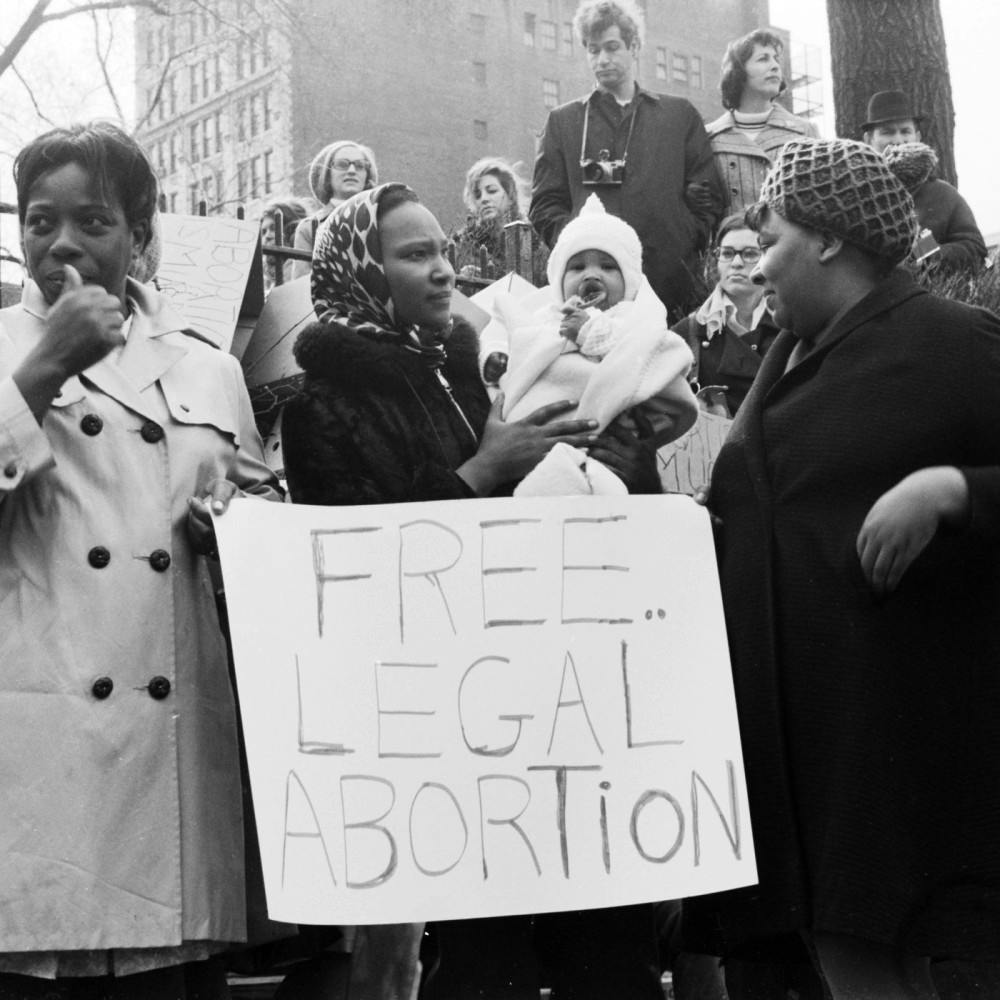The long-standing controversy of abortion has been on the minds of U.S. political leaders for decades and the packing of the Supreme Court has set reproductive rights back. Minorities are being targeted by packing while white, cisgendered people are favored in legislation for reproductive healthcare.
Women of color were monumental in the Women’s Right Movement that peaked in the 1960s and ‘70s. Many women of color were forced into sterilization from the 1910s until the ‘80s. Problems with sterilization still happen today. Allegations made against ICE detention centers that forced sterilization onto immigrant women surfaced in 2020.

Jennifer Nelson, author of “Women of Color and the Reproductive Rights Movement”, stated in her book that women of color challenged the predominately white middle-class feminist movement to recognize that the abortion rights movement needed intersectionality. Big issues such as healthcare for the poor, child-care, welfare rights and anti-sterilization abuse efforts were brought up by women of color.
With women of color setting the tone for the movement, the overturning of Roe v. Wade is affecting them more than others. According to the Centers of Disease Control and Prevention (CDC), the Abortion Surveillance – United States 2019 report reported that most people who have abortions are not white. According to the data, in 2019, the abortion rate was 23.8 per 1,000 Black women, 11.7 per 1,000 Hispanic women, 13 per 1,000 Asian American, Native American, and other women with 6.6 per 1,000 white women. The rate is about four times higher for Black women than it is for white women.
Prior to the overturning with the Dobbs decision, people of color faced more challenges obtaining abortions and other reproductive healthcare.
“The logic of the choice has a significant level of disadvantage,” said Chris Talbot, a University of Northern Colorado professor of gender studies. “It’s one of the things that organizations like Planned Parenthood or local, low-cost clinics are struggling against is that level of privilege and disadvantage [that was] written into Roe v. Wade itself.”
Out of the 50 states, 21 have restrictions or full bans on abortions. The majority of Black Americans live in the Southern states where some of the most restrictive abortion legislation in the country is in effect. Out of the 16 states that are considered part of the Southern United States, nine have eliminated abortions in almost all circumstances, five have heavy restrictions with a small gestational limit, one state has a third trimester limit and the last has no limits on when you can receive an abortion.
In the United States, the health systems are notorious for having racial and ethnic minorities receive lower-quality healthcare than white people. While other factors such as age, income, access to insurance and conditions apply, Black and Brown people are still being failed by the health care system.

With the United States’ poor handling of minority groups related to healthcare, reproductive resources will be harder to access for minorities. In Abortion Access as a Racial Justice Issue, an article put out by The New England Journal of Medicine, states systemic racism affects reproductive health and is shown in maternity mortality statistics. Black and Indigenous people are two to four times more likely than white people to die during a pregnancy or around the time of childbirth. Statistics from 2021 show that a nationwide abortion ban would increase maternal mortality by 21% overall and by 33% among Black Americans. The reason being minorities groups, immigrants and rural communities have limited access to abortion care and other reproductive health care.
Others believe that the reason for Black Americans having more abortions than any other group is a result of aggressive marketing strategies towards minority groups. Issues4Life, a faith-based organization, states that pro-choice groups such as the Planned Parenthood Federation of America has racist and eugenic goals. Issues4Life also says that pro-choice organizations market more towards minority groups and that is the reason behind the higher statistics in people of color getting abortions.
There is evidence of Planned Parenthood having racist and eugenic ideology when it was first created in 1921 under founder Margret Sanger. But for over a century since the organization was created, this outdated ideology has been phased out. Planned Parenthood has allowed many people to receive reproductive healthcare at a low cost when care wouldn’t have happened otherwise.
With statistics and the deep-rooted racism in the United States, Black Americans aren’t the only minority group to have high abortion rates. All women who are a part of a racial or ethnic minority group face accessibility issues from contraception resources to abortions based on America giving minority groups far less better healthcare than white people.
Minority groups are being targeted the most with reproductive health care being stripped away in almost half of the nation. The decision of five Supreme Court judges was made based on personal religion and ideologies. There was no separation of church and state in this decision. Decisions rooted in religious beliefs will continue to happen in America if there isn’t a fix to the system. While the targets are still on the backs of minorities, the growing need for all of us to understand our rights and a system that is working against them is crucial to getting our freedoms back.
Zvi Gutierrez is the editor-in-chief of The Mirror and a senior journalism major at the University of Northern Colorado.






